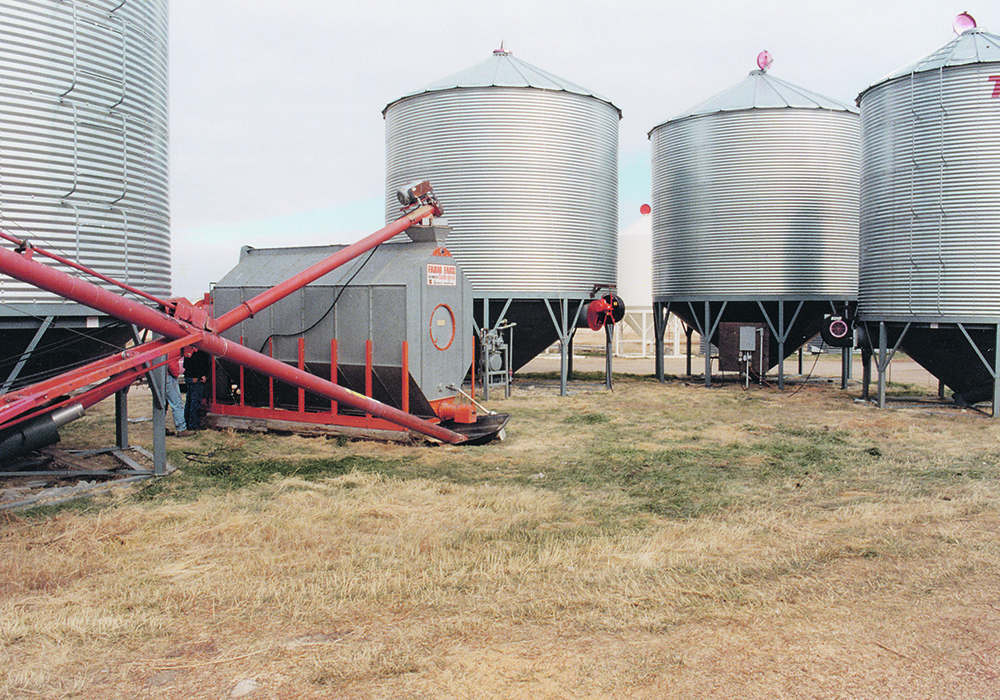Senate to vote soon on carbon tax exemption bill, and the chamber is accused of delaying tactics to keep it from passing
The fate of Bill C-234 in the Canadian Senate has become a numbers game.
Bill supporters are urgently asking farmers to contact their senators to explain how important it is that they are in Ottawa Nov. 21 to vote.
Senators must be present in the chamber to vote, unlike members of Parliament who can vote on-line.
After surviving a Nov. 7 vote that rejected an amendment to remove barns and greenhouses from potential carbon pricing exemptions, the bill became bogged down in procedural and political posturing.
Read Also

Using artificial intelligence in agriculture starts with the right data
Good data is critical as the agriculture sector increasingly adopts new AI technology to drive efficiency, sustainability and trust across all levels of the value chain.
An abrupt motion to adjourn during the Nov. 9 third-reading debate threw the bill’s future into question.
C-234 is a private member’s bill that would exempt propane and natural gas used to dry grain or heat and cool barns and greenhouses from the carbon tax. It received support from all parties in the House of Commons as it has wound its way through the process over the last two years.
At third reading, senators were discussing an amendment moved by Ontario senator Lucie Moncion to eliminate the government’s ability to extend the eight-year sunset clause in the bill — an amendment the Senate agriculture committee had already rejected — when speaker Raymonde Gagne from Manitoba recognized senator Bernadette Clement as she moved to adjourn. The motion passed 29-24 despite protests from senators ready to speak to the bill.
Senator Don Plett, also from Manitoba, said it was unfair.
“I was standing on debate, and for Madame Speaker to allow somebody to move an adjournment motion while people are standing on debate I believe is definitely out of order,” he said.
Senator David Wells, the bill’s sponsor in the senate, said on social media that “the fix is in.” He accused Gagne of working with leaders in the Independent Senators Group to limit the debate.
“The Speaker failed to fairly allow debate on an amendment that already failed at committee,” he said on X. “There were speakers ready to speak on the frivolous amendment and they were on their feet to speak and the speaker deliberately did not recognize those ready to speak. In my 11 years in the Senate, I have never seen a speaker shut down debate when speakers were ready and willing and asking to speak. A shameful day for our chamber and the practice of sober second thought.”
Quebec senator Leo Housakos called the situation outrageous.
Wells and others said the federal Liberal government is working to delay the bill so the environment and natural resources ministers can pressure four incoming senators to vote against it.
Farmers have been pressuring senators as well. Agriculture committee chair Rob Black said he received thousands of letters and emails supporting the original bill.
Dave Carey, co-chair of the Agriculture Carbon Alliance, said farmers have to maintain and ramp up that pressure.
He said the amendment is not about the bill’s substance but a delay tactic.
“I’ve never seen this level of interference and intervention from the prime minister’s office with a private member’s bill,” he said in an interview Nov. 10. “This is a bill that had all-party support, including some Liberals, in the House. This is an intentional tactic based on trying to procedurally delay this as long as possible.”
Rallying enough senators to vote against the amendment Nov. 21 could move the bill along but there could be more delays. Amendments that aren’t debated for 15 sitting days drop off the agenda. However, each time debate occurs, that clock resets to zero.
“The concern is that the prime minister’s office has instructed senators that are aligned with them to continuously introduce amendments,” said Carey.
















